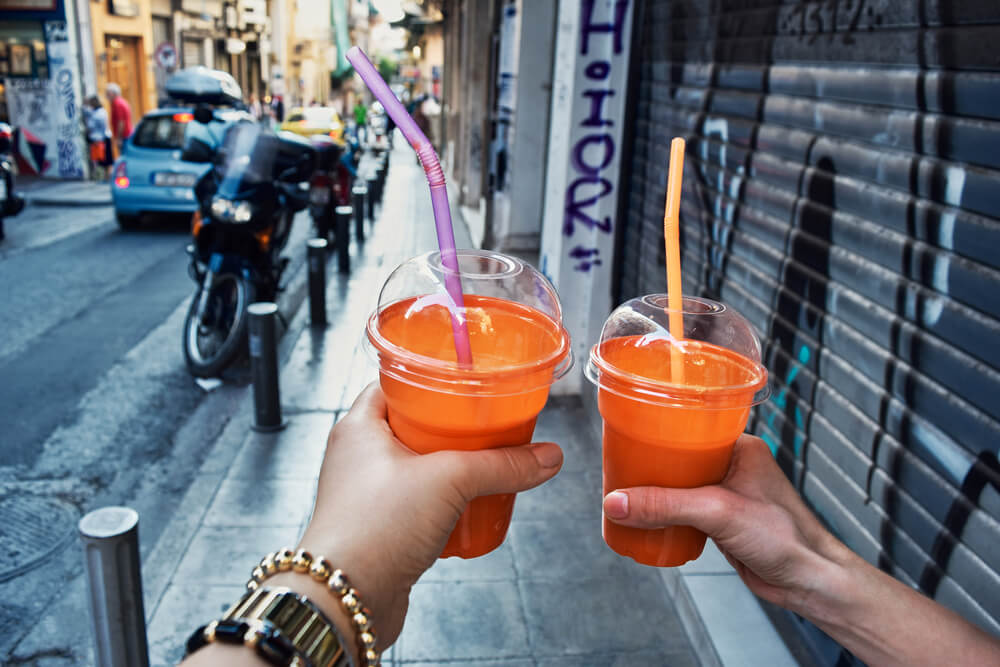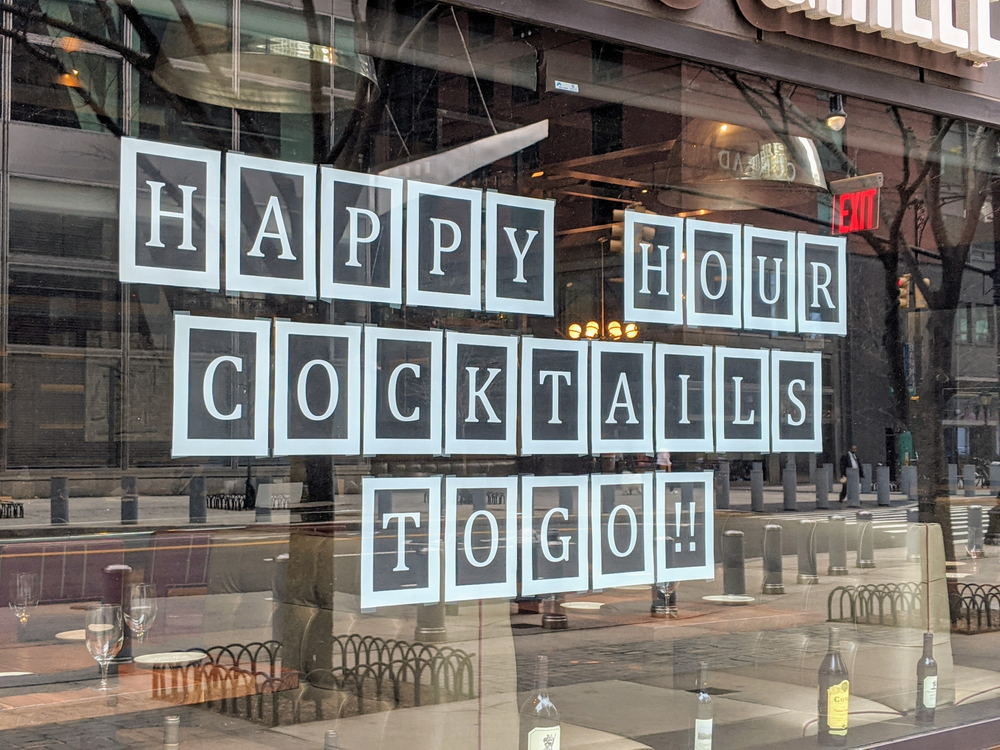America’s piecemeal embrace of to-go drinks marks a sweeping change to the nation’s liquor laws.

Before the pandemic, to-go cocktails were mostly just a plot point in an incoherent story your friend told after returning home from a Hurricane-fueled weekend in New Orleans. After the pandemic, though, in large swaths of America, to-go cocktails will be here to stay.
With pandemic restrictions easing in much of the country, more than a third of states have already approved measures that will allow bars and restaurants to keep selling takeout cocktails and other alcoholic drinks long after bars and restaurants reopen to full capacity. And that list is all but guaranteed to grow before most state legislatures adjourn for the summer.
The intricacies of US liquor laws—which can vary by state, county and even city or town—are enough to make you reach for a drink. But taken together, the current legislative trend marks arguably the most sweeping change to those laws since Congress pressured states to increase the drinking age to 21 more than three decades ago.
Generally speaking, the 50 states currently fit into one of three categories when it comes to their residents’ ability to buy an adult beverage from a bar or restaurant and walk out the door (or away from the window) with it: those that stood firm against to-go cocktails during the pandemic, those that gave the temporary OK and those that have since turned that short-term greenlight into a permanent one. According to data from the Distilled Spirits Council, a liquor industry trade group with good reason to track such things, those three categories currently look like so:
To-Go for Good: Arizona, Arkansas, Iowa, Florida, Georgia, Kansas, Kentucky, Montana, Nebraska, Ohio, Oklahoma, Texas, West Virginia, Wisconsin and the District of Columbia
To-Go for Now: California, Colorado, Connecticut, Delaware, Hawaii, Illinois, Louisiana, Maine, Massachusetts, Maryland, Michigan, Mississippi, Missouri, Nevada, New Hampshire, New Jersey, New York, North Carolina, Oregon, Pennsylvania, Rhode Island, Tennessee, Vermont, Virginia and Washington
Not Now (Not Ever?): Alabama, Alaska, Idaho, Indiana, Minnesota, New Mexico, North Dakota, South Carolina, South Dakota, Utah and Wyoming
(Note: Just because you can legally buy a to-go cocktail doesn’t mean you can legally drink it on the street. Open-container laws remain on the books in most of America. Put another way: Your friend still has good reason to return to the French Quarter of New Orleans after he’s vaccinated.)
The middle group is the one to keep an eye on. It includes states that are likely to soon make takeout cocktails permanent, such as Oregon and Missouri, where state lawmakers recently passed legislation that just needs their governor’s signature to become law; states like New York and Connecticut, where permanent measures are under consideration, but their passage is not guaranteed; and states that have extended the temporary measures for more than a year, including Illinois (through the end of 2023) and Maryland (through June 2023).

A restaurant in New York City advertises cocktails to go in April, 2020. Photo by Christopher Penler/Shutterstock.
The takeout trend started early in the pandemic, as states moved to limit in-person dining and drinking when COVID-19 cases began to climb. New York was the first state to OK to-go sales in an attempt to lessen the financial hit those establishments were taking. Nearly three dozen states eventually followed suit in some form or another.
Booze is the most profitable thing most bars and restaurants sell, as liquor and cocktails typically offer even higher margins than beer or wine. And while to-go sales helped ease the financial pain those places felt, they did not completely eliminate it. According to industry figures from the National Restaurant Association, roughly 90,000 US bars and restaurants closed their doors for the long-term or forever during the pandemic. The pain is likely to linger, too, given Americans may not be as eager to pack into a cramped bar as they were before the pandemic. As one cocktail bar owner told Oregon lawmakers ahead of last week’s passage of its to-go law: “Anything that can help with our bottom line… could be the difference between survival and insolvency.”
How many more states move to extend to-go sales may come down to the nuances of their current distribution laws, which vary widely across the country. In Oregon, for instance, state law requires bars and restaurants to buy their booze from the same stores that consumers do. For Oregon liquor stores, then, to-go cocktails are less of an existential crisis and more of a minor inconvenience, which explains why the stores were relatively restrained in their opposition. But it’s a different story in a place like Massachusetts, where alcohol sales are closer to a zero-sum game between bars and restaurants and state-permitted liquor stores, which have to date managed to block a proposed to-go extension.
It’s not all about money, however. Public health groups have also raised concerns that to-go booze can be a recipe for disaster. In Connecticut, where lawmakers are considering their own extension, the state’s Department of Mental Health and Addiction Services has warned that to-go service—which in many places also means delivery service—is making it easier for teenagers to get their hands on alcohol.
There’s also the non-trivial fact that the past 15 months have been particularly booze-filled for many of us. According to a survey from the American Psychological Association, nearly a quarter of Americans said they were drinking more than usual to help deal with pandemic stress—a share that doubled for parents of young children. Now, as the case count drops and vaccination rate increases in the US, Americans are turning to alcohol to celebrate—often at the urging of businesses and with the blessing of government officials. Illinois’ temporary takeout extension, for instance, came with a “beer and a shot” provision that allows bars to give vaccinated customers a free drink. Anheuser-Busch, meanwhile, promised this week to give out a free round of beer once 70 percent of Americans are partially vaccinated.
To-go drinks or not, then, many Americans are likely to wake up in a post-pandemic world much the same as they did during it: hungover.